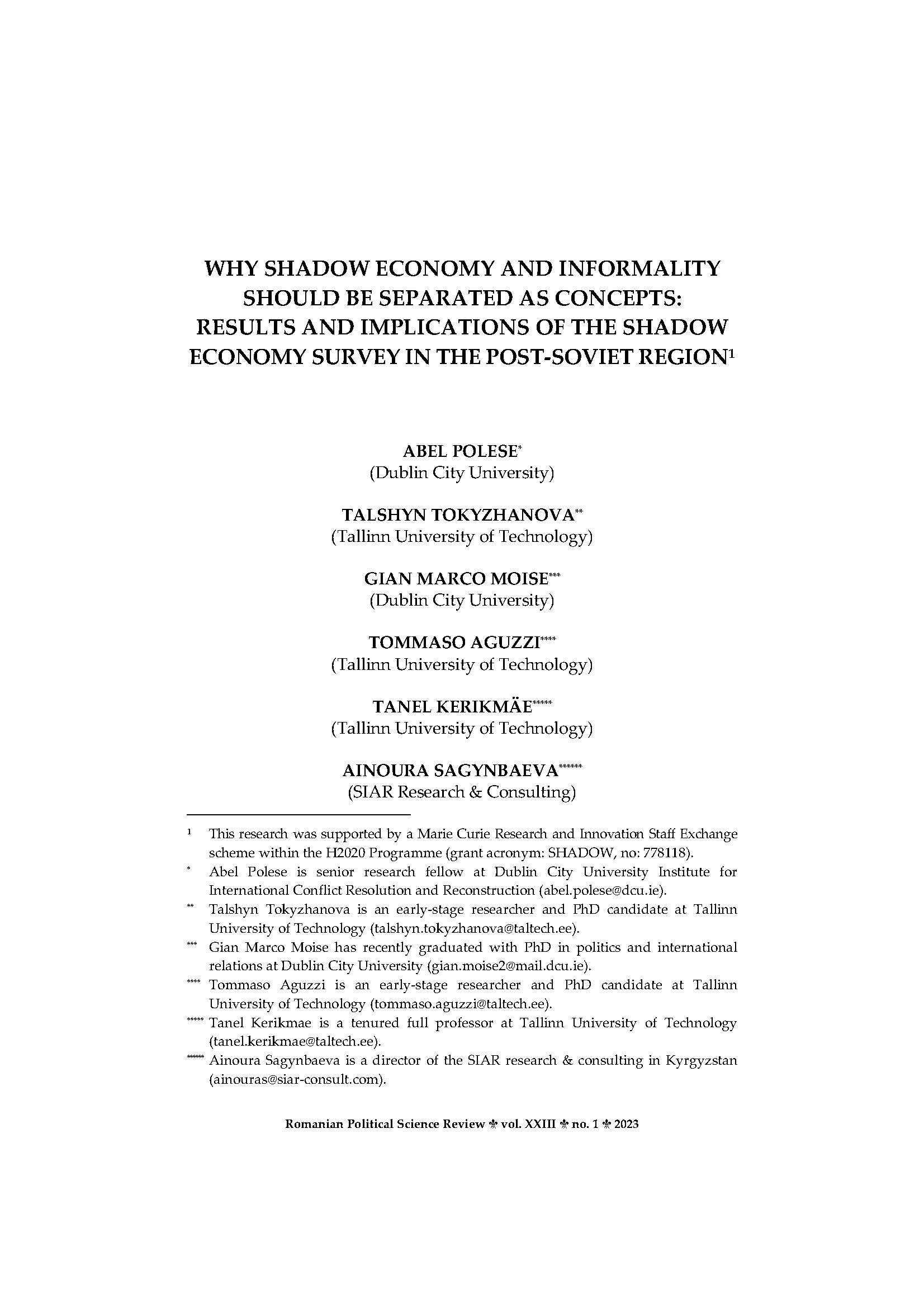WHY SHADOW ECONOMY AND INFORMALITY SHOULD BE SEPARATED AS CONCEPTS: RESULTS AND IMPLICATIONS OF THE SHADOW ECONOMY SURVEY IN THE POST-SOVIET REGION
DOI:
https://doi.org/10.62229/sprps23-1/3Keywords:
Shadow economy, informality, informal economy, informal practices, post-Soviet regionAbstract
The current article is intended to bring two contributions to the study of informality. Empirically, it shares the result of the shadow economy survey for the 2017 and 2018 fiscal years for Kyrgyzstan, Russia, and Ukraine. These results are used to calculate the shadow economy index estimated as a percentage of the GDP. Already established as an annual exercise for Latvia and the Baltics since 2010, the survey has been applied to Moldova and Romania (since 2016), Poland (2015-2016), and Kosovo (in 2018). In the frame of the project “SHADOW: An Exploration of the Nature of Informal Economies and Shadow Practices in the Former USSR Region,” the scope of the survey was expanded to Kyrgyzstan, Russia, and Ukraine, keeping the same methodology and used for direct measurement of underground activities.2 By doing this, we discuss the use of direct measurement approaches to suggest that, while quantitative approaches are useful to estimate the size of shadow economies, direct approaches can be used to integrate these data and look for deeper correlations between the persistence of shadow transactions and some societal tendencies that are not necessarily economic.





